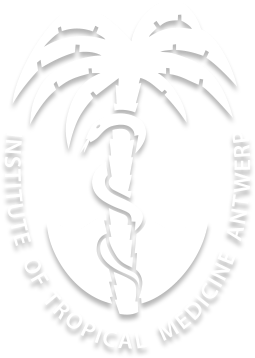The Board of Governors met in March, June, October and December 2015. In addition to its meetings on the same dates, the Bureau held two additional sessions in April and September. The Board welcomed two new members. Prof. Nicolas Antoine-Moussiaux, of the Faculty of Veterinary Medicine at the University of Liège, replaced Prof. Myriam De Spiegelaere as representative of ARES (Académie de Recherche et d’Enseignement Supérieur), the federation of French-speaking universities in Belgium. Since 2013, they are indeed directly represented in the Board of ITM. The veterinary expertise of Prof. Antoine-Moussiaux is highly welcomed in the Board. Additionally, Mrs. Anne Chapelle was co-opted as a new member. She heads bvba 32, one of Antwerp’s most famous fashion companies, but is also a trained nurse and an ITM alumna. She will contribute valuable managerial expertise as well as field experience, along with her broad network in the world of business and culture.
Under the revised statutes of 2013, the mandate of one third of the board members is renewed every third year, in order to ensure continuity through phased rather than simultaneous rotation. This new rule was applied for the first time in 2015. The initial 2-year mandates of Prof. Minne Casteels (Catholic University of Leuven), Prof. Patrick De Baetselier (Free University of Brussels), Mr. Duchateau (City of Antwerp), Mr. Karel Baert and Mr. Ajit baron Shetty (co-opted members) were all renewed for another six years.
Throughout the year, the Board meetings were dominated by vital discussions on governance and strategy. After almost a year of debate and refinement, the new internal regulations of governance, delegation and power of attorney were finally approved in the March meeting. The statutes and the internal regulations together create a participatory environment with adequate academic checks and balances on one hand, and clear responsibilities and accountabilities on the other. The result of this difficult but stimulating exercise has already shown its merit in practice, and has eased to a great extent the teething problems of the new ITM. The documents will now be further integrated in a modern charter of good governance.
The Board furthermore established an Audit Committee, an almost indispensable instrument in the establishment of good governance practices. The board members Ayit baron Shetty (chair) and Prof. Minne Casteels accepted to lead the committee, and selected the consultancy firm Deloitte as ‘internal auditor’. The first exercise focused on the current governance system and resulted in an analytic and challenging report that was presented and debated in the December meeting. It obliged the Board to reflect on its own objectives, strategies and modus operandi. Strategic sessions on these issues will be high on the agenda for 2016, and may be followed by further governance reforms. In addition, the internal audits will continue with surveys of the Information Technology (IT) and Finance services.
The Board, and especially the Bureau, were also closely involved in the strategic alignment of the central Support Services to the new departmental structures and strategies laid out in the ITM 2020+ reforms. As in most other academia, many scientists are suffering heavily from the increasing administrative burden of project management, quality assurance, safety requirements and staff well-being. Nevertheless, these aspects of academic entrepreneurship have become as important as scientific excellence in today’s fiercely competitive global arena. The central support units for human resources, finances, IT and infrastructure must therefore develop into true ‘business partners’ for the scientific departments, rather than mere service suppliers, and are obliged to operate at a high level of efficiency, transparency and responsiveness. A crucial component of this endeavour is distribution and harmonisation of tasks with the newly established departmental management units.
Furthermore, the Board has paid considerable attention to the well-being and job satisfaction of the staff, which inevitably has been strained by the reforms spanning the past years. Thankfully, focus groups, expert advice and integrated action plans have born fruit. The well-being, job satisfaction and motivation will remain high on the agenda, in their own right and as a vital element of ITM’s unique calibre.
As of 1 November, the Board appointed Mr. Jean-Christophe Donck as new General Manager of ITM and Secretary of the Board. He succeeds Mrs. Lieve Schueremans, who retired after 20 years of diligent and tireless service in this position. The Board is extremely grateful for the abundant contributions of Mrs. Schueremans to the expansion and modernisation of ITM, and wish her all the best for many years to come. Mr. Donck has an impressive and international background in life sciences management, and is keenly suited to tackle the aforementioned challenges.
The most important focus of the Board remains, however, ITM’s scientific excellence, societal relevance and institutional sustainability. We were therefore very pleased that our newly composed Scientific Advisory Board hailed the unique position and qualities of the ITM and recommended “to celebrate the differences between ITM and universities for competitive advantage”. Scientific excellence is a vital prerequisite to attract outstanding researchers, bright students and competitive funding. All the decisions of the Board are taken in this perspective.
The ultimate and most gratifying act of the Board was therefore the final approval of ITM’s Strategic Plan 2016-2020 in December. The institutional plan elegantly crystallizes the departmental plans into a set of over-arching principles and ambitions. It will guide the management and the Board in the roll-out of ITM 2020+, along with pivotal decisions that lie ahead in the next five to ten years.
Cathy Berx, Governor of the Province of Antwerp
Chair of the Board of Governors of ITM
